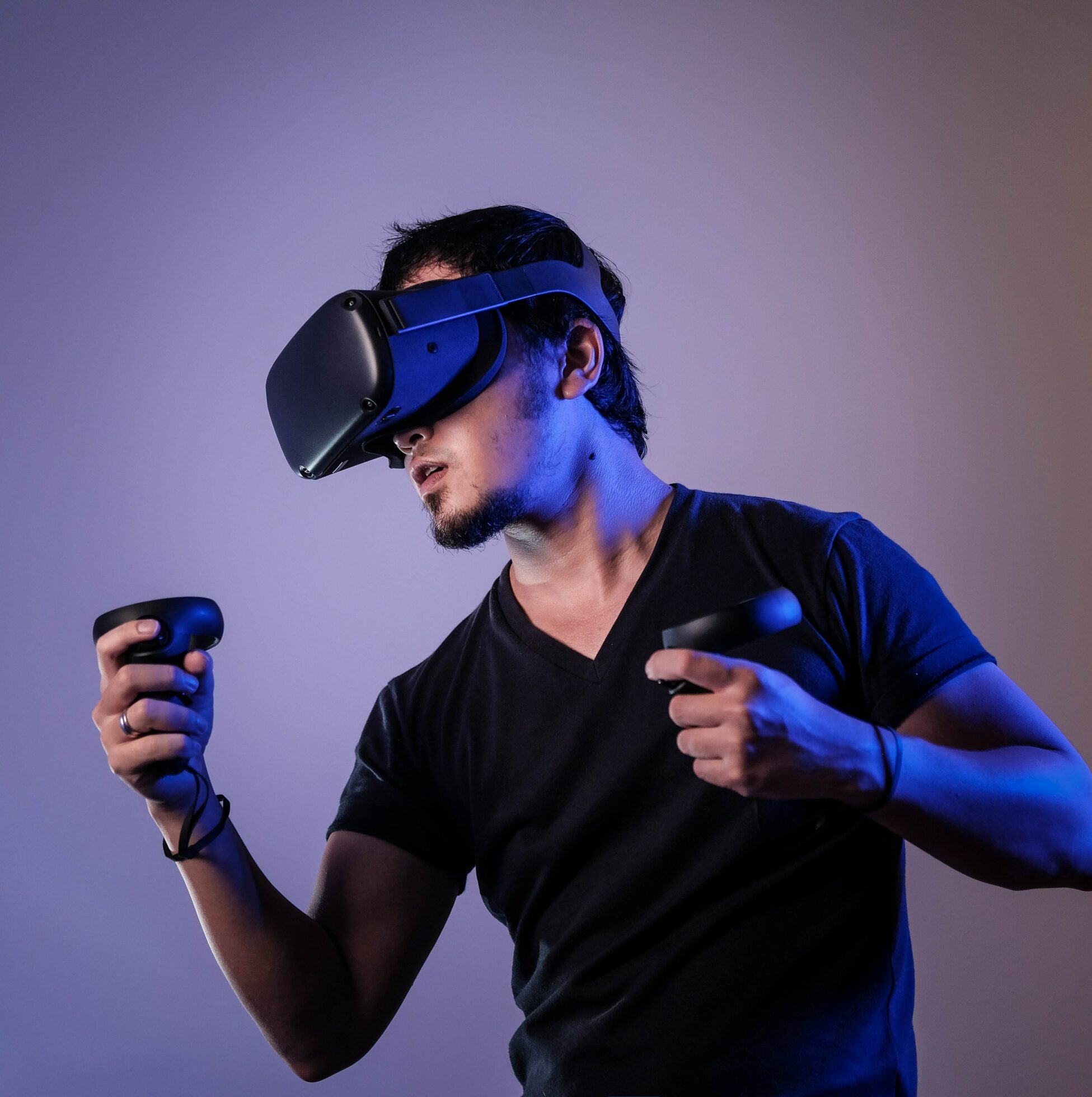Ob Sie es glauben oder nicht, bald wird die Technologie verfügbar sein, mit der Sie Ihren Arbeitsalltag in die virtuelle Realität verlagern können - eine digitale Welt, die remote Arbeit wieder zu einem Erlebnis macht.
Für viele ist diese Technologie eine Dystopie, für eine Handvoll reicher Milliardäre ist sie ein wahr gewordener Traum. Und sie kommt an einen Arbeitsplatz in Ihrer Nähe, ob Sie es wollen oder nicht. Bald. Sehr bald.
Werfen wir einen Blick darauf, wie Virtual Reality (VR) in remote tatsächlich funktionieren würde, aber zuerst: Was ist Virtual Reality?
Was ist Virtual Reality?
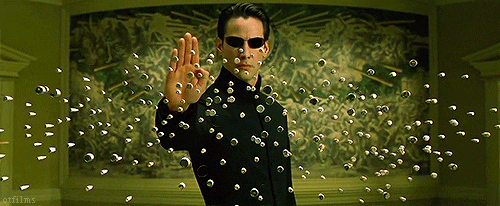
Wie der Name schon sagt, handelt es sich um eine Realität, die vollständig virtuell ist. Eine nicht-reale Realität. Es handelt sich um eine computergenerierte dreidimensionale Umgebung, mit der eine Person mithilfe elektronischer Geräte wie einem Helm und speziellen Handschuhen, die mit Sensoren ausgestattet sind, auf eine scheinbar reale oder "physische" Weise interagieren kann.
Während sie früher in das Reich der Science-Fiction verwiesen wurde, ist die virtuelle Realität heute eine echte Realität. Sie haben vielleicht auch schon vom Metaversum gehört...
Was ist das Metaverse?
Ein Metaversum ist eine bestimmte Art von virtueller Realität, an der mehrere Nutzer zur gleichen Zeit und am gleichen virtuellen Ort teilnehmen und interagieren können. Technisch gesehen gibt es viele verschiedene Arten von Metaverse. Die derzeit berühmteste ist bekanntermaßen ein Misserfolg: Meta.

Facebook hat sich 2021 in Meta umbenannt und versucht, sein Virtual-Reality-Metaverse als den nächsten Schritt in den sozialen Medien zu propagieren. Die meisten Leute haben darüber gelacht. Ein paar Leute haben es ausprobiert und dann darüber gelacht. Die Meta-Aktie stürzte Aber erst vor zwei Monaten wurde ein Interview mit unveröffentlichter Meta-Technologie geführt, das die Menschen in Erstaunen versetzt. Sie ermöglicht es zwei Personen, die sich auf der anderen Seite der Welt befinden, fotorealistische Avatare in einen virtuellen Raum zu projizieren, um ein Gespräch zu führen, das sich anfühlt, als wären sie im selben Raum.
Sieh dir das mal an, wie gruselig!
Es ist nur logisch anzunehmen, dass diese Art von Technologie irgendwann in der Zukunft für die Öffentlichkeit zugänglich sein wird. Auch wenn es für den Normalbürger nicht erschwinglich ist, ein hochmodernes Virtual-Reality-Headset zu kaufen, haben Sie Glück! Ihr Arbeitgeber kann es in Ihrem Namen kaufen! Denken Sie an Firmenlaptops und anderen Krimskrams. Ihr VR-Headset könnte in Zukunft ein fester Bestandteil Ihrer Arbeitsausrüstung sein.
Obwohl diese Meta-Technologie bahnbrechend ist, muss noch entschieden werden, ob Meta der König des Metaversums sein wird oder nicht. Schließlich gibt es Hunderte von Metaverse-Projekten, deren Kernstück die Dezentralisierung ist. Diese Projekte sind in der Regel blockchainbasiert.
Was hat Blockchain mit irgendetwas zu tun?
Wenn man von Metaverse spricht, denkt man oft zuerst an Krypto-Bros und erschrickt am ganzen Körper. Das liegt daran, dass das Metaverse ein beliebter Fokus für Tonnen von Blockchain-basierten Krypto-Projekten ist.

Obwohl Krypto-Metaversen oft als einfach und cartoonhaft kritisiert werden, gibt es durchaus Vorteile, wenn man ein Metaversum dezentral mit einer Blockchain aufbauen möchte.
Zunächst einmal verhindert die Dezentralisierung, dass Unternehmen wie Meta alle Ihre Daten besitzen und verkaufen können (womit sie derzeit ihr Geld verdienen). Stellen Sie sich vor, dass diese "Virtual-Reality-Videogespräche" der nächste Schritt sind - dann hätte Meta automatisch Zugriff auf Ihre gesamte Konversation, einschließlich Körpersprache, Mimik und sogar auf Ihr Konterfei. Die Privatsphäre würde der Vergangenheit angehören (falls wir überhaupt noch etwas davon haben).

Darüber hinaus ist Meta eine zentralisierte Einrichtung mit einer einzigen Schwachstelle. Wenn ein böswilliger Akteur Meta angreift, kann er auf die Daten von Millionen von Menschen zugreifen (wie das haben sie schon viele Male getan) und Ihre privaten Unterhaltungen, aber auch Ihr Konterfei stehlen.
So wie Sie mit Bitcoin Ihr Geld in Ihrer persönlichen Brieftasche (einem privaten Banktresor, zu dem nur Sie Zugang haben) speichern können, können Sie mit der zugrunde liegenden Blockchain-Technologie auch Ihre Daten auf dieselbe Weise speichern. Damit ein Hacker auf die Daten von Millionen von Menschen zugreifen kann, müsste er Millionen von Personen einzeln hacken. Das ist dann ein Ding der Unmöglichkeit.
Also keine Sorge, der Krypto-Bro kauft vielleicht verpixelte NFTs mit dem Taschengeld seiner Oma oder virtuelles Land in Snoopverse, aber es gibt einige da draußen, die versuchen, die technokratische Dystopie, die uns alle erwartet, abzuwenden.

Arbeiten in der virtuellen Realität
VR bei der Arbeit remote wird nie etwas werden, oder? Sicherlich wird sich die virtuelle Realität nicht durchsetzen... Erinnern Sie sich noch daran, als die Leute sagten, das Internet sei eine Modeerscheinung? Oder dass sich die Menschen keine Autos mehr leisten könnten? Oder dass sich Handys mit Touchscreen nicht durchsetzen würden?
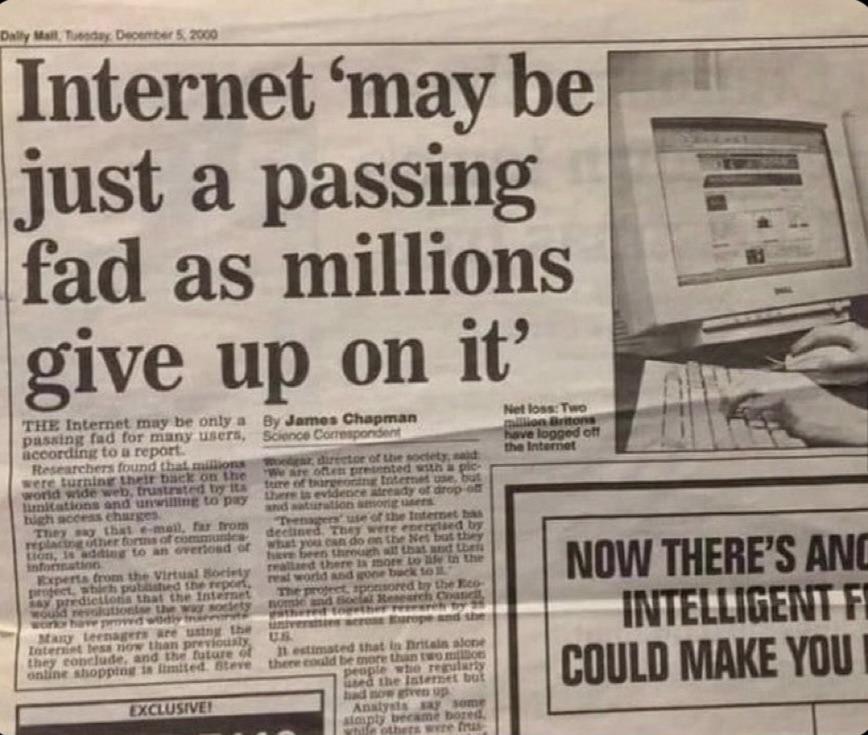
Es könnte sein, dass sich die Geschichte wiederholt. Auch wenn wir es nur ungern zugeben, ist die Technologie schon ziemlich weit fortgeschritten. Das Interview mit Mark Zuckerberg macht uns wirklich Angst, aber man kann nicht leugnen, dass ein fotorealistischer Avatar anstelle einer klobigen Zeichentrickfigur durchaus reizvoll ist. Dadurch wirkt das ganze Szenario... nun ja, lebensecht. Das ist der gruseligste Teil des Ganzen. Es ist wirklich beeindruckend!
Was können Sie also erwarten, wenn es sich durchsetzt?
- Remote Arbeitstreffen: So wie Sie heute mit Zoom telefonieren oder sich mit Google Meets treffen, könnten Sie jeden Tag Besprechungen mit Ihren Arbeitskollegen abhalten. In der Zukunft werden jedoch eine Reihe von Bildschirmen mit den Gesichtern der Menschen eine lächerliche Erinnerung an die Vergangenheit sein - so wie eine Einwahl-Internetverbindung. Stattdessen werden Sie in der Lage sein, Ihren Ganzkörper-Avatar in Ihre virtuelle Arbeitsumgebung zu projizieren und mit Ihren Kollegen in Ihrer ganz eigenen Büromatrix zu sprechen.
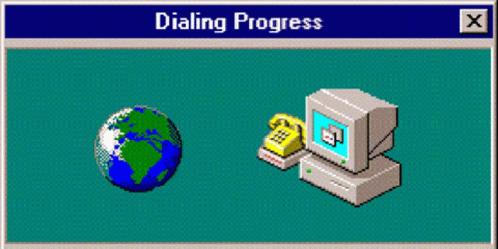
- Brainstorming und Zusammenarbeit: Die Zusammenarbeit mit Ihren Kollegen aus der Ferne wird bei der Arbeit in VR remote viel einfacher sein. In Online-Meetings kann es oft schwierig sein, Brainstorming zu betreiben und zusammenzuarbeiten, da oft zu viele Leute an einem Gespräch teilnehmen, die sich nicht gegenseitig auf die Füße treten wollen. Wenn Sie sich alle in einer büroähnlichen Umgebung befinden, ist es viel einfacher, einen Beitrag zu leisten und sich an Diskussionen oder Planungssitzungen wie im richtigen Leben zu beteiligen.
- Aufzeichnung von Meetings: Aufzeichnung Ihrer Zoom, Google Meetoder MS Teams ist heute ein wesentlicher Bestandteil von Besprechungen, um das Gesagte zu dokumentieren. Aber in der virtuellen Realität wird die Aufzeichnung Ihrer Besprechungen die Dinge auf eine ganz andere Ebene bringen. Möglicherweise können Sie die gesamte Umgebung aufzeichnen und die Kamera manuell bewegen, um das Geschehen aus jedem beliebigen Winkel zu beobachten. Ganz zu schweigen davon, dass Sie dank der hochpräzisen Sprechererkennung eine vollständige Niederschrift erhalten könnten. Oh, warten Sie, das gibt es ja heute schon mit tl;dv kostenlos...
Was könnte schiefgehen?

Die meisten Menschen - vor allem diejenigen, die mit Black Mirror vertraut sind - werden dies wahrscheinlich für einen Orwellschen Albtraum halten. Aber ob es uns nun gefällt oder nicht, VR ist in Sicht. Was können wir also erwarten? Was ist das Schlimmste, was passieren könnte?
- Unsere gesamte Schicht findet in der virtuellen Realität statt: Es hätte keinen Sinn, aus der Ferne zu arbeiten, wenn wir alle den ganzen Tag im virtuellen Büro verbringen müssten. Aber wenn es darum geht, Büroräume zu mieten, vor allem in einer Großstadt, werden Sie feststellen, dass die Unternehmen es vorziehen, aus der Ferne zu arbeiten. Es könnte sogar eine völlig neue Art von Arbeit entstehen: das virtuelle Arbeiten. Sie behalten alle Vorteile der Arbeit im Büro (möglicherweise sogar mit eigenen Pausenräumen, um mit Ihren Kollegen auf einer intimeren Ebene als bei Videogesprächen zusammenzukommen) und die meisten Vorteile der Arbeit aus der Ferne (überall auf der Welt zu sein), während Sie das ganze Geld für die Büromiete sparen.
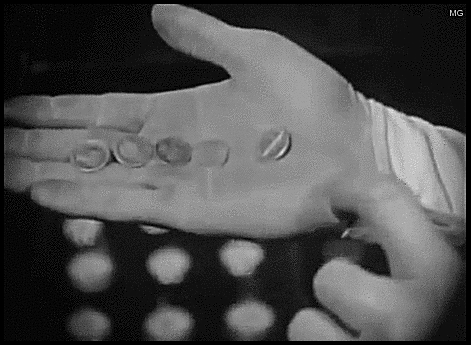
- Sie nimmt immer mehr Platz in unserem Leben ein: VR hat es nicht nur auf den Arbeitsplatz abgesehen. Spiele, soziale Medien, Online-Shopping und Messenger-Apps haben alle das Potenzial, sich mit VR vertraut zu machen. Stellen Sie sich GTA vor, aber Sie sind eine fotorealistische Version von sich selbst und können körperliche Empfindungen haben. Wer weiß, welche gesellschaftlichen und mentalen Auswirkungen eine solche Stimulation haben wird. Es gibt auch die Idee, in virtuelle Läden zu gehen, um Dinge anzuprobieren. Das ist nicht so absurd, wie es klingt. In der Tat gibt es einige Einzelhändler dies bereits in kleinem Maßstab.
- Wir werden einsamer: Wir sind bereits viel mehr isoliert als früher, vor allem seit der Pandemie. Aber VR droht, einen noch größeren Keil zwischen die Menschen zu treiben. Es ist zwar schön und gut, dass die Avatare fotorealistisch sein können, aber es wird trotzdem nie ein adäquater Ersatz für die Realität sein. Wir brauchen die menschliche Interaktion, und die virtuelle Realität droht uns physisch mehr denn je zu trennen.
- Wir leben ständig in der virtuellen Realität: Was auf den ersten Blick lächerlich klingt, ist gar nicht so schwer zu glauben, wenn man bedenkt, wie viel Zeit Kinder heutzutage mit Videospielen verbringen oder wie sehr die Zivilisation am Handy klebt. Alles, was es braucht, ist das richtige Unternehmen, das süchtig machende, gewohnheitsbildende Verhaltensweisen in VR einbettet, und boom! Verabschieden Sie sich von Sonnenlicht, Bewegung und gesunder Ernährung. Der Begriff "Couch-Potato" wird damit auf eine neue Ebene gehoben. Haben Sie jemals "Inception" gesehen? Erinnerst du dich an die Leute, die in einem künstlichen Schlummer verkabelt sind, weil sie glauben, dass die Traumwelt real ist? Das sind wir in der Zukunft! 😀

Alles in allem gibt es also nicht viel zu verlieren! Das Schlimmste, was passieren kann, ist, dass wir alle unsere menschlichen Rechte und Privilegien verlieren und zu digitalen Sklaven werden, die in einer Scheinwelt gefangen sind, in der die Entwickler buchstäblich neue Gesetze der Realität kodieren können, während wir unser Leben damit verschwenden, uns immer mehr von dem zu lösen, was es heißt, ein Mensch zu sein, um schließlich mit der Maschine zu verschmelzen und für immer in einer unerfüllten Schattenphantasie zu leben.
Aber hey, wir sparen uns die Büro Kosten!
VR Remote Arbeit: Eine echte Möglichkeit?
Ob die Arbeit von VR remote tatsächlich zustande kommt, ist noch offen. Wenn Sie die meisten Menschen heute fragen würden, ob sie das wollen, würden sie wahrscheinlich nein sagen. Aber wenn man dieselben Leute vor zwanzig Jahren gefragt hätte, ob sie 8 Stunden am Tag auf einen Bildschirm starren wollen, hätten sie wahrscheinlich auch nein gesagt!
Wir wissen nur, dass sich die Arbeit von remote ständig weiterentwickelt. Und wir werden immer auf dem Laufenden bleiben, bei jedem Schritt des Weges.
Laden Sie tl;dv kostenlos herunter und beginnen Sie noch heute mit der Aufzeichnung, Transkription und Erstellung von AI-Notizen und Zusammenfassungen für Ihre Besprechungen! Die Anmeldung dauert nur zwei Minuten, und Sie sind nicht verpflichtet, etwas zu bezahlen.

